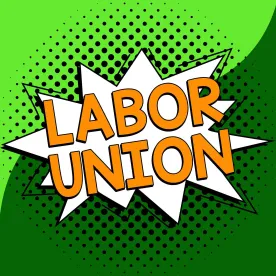Today, in perhaps the most significant change in federal labor law in more than 50 years, the National Labor Relations Board (“NLRB” or “Board”) announced a new framework that determines when employers are required to recognize and bargain with a union upon demand, without a representation election.
In Cemex Construction Materials Pacific, LLC, 372 NLRB No. 130, the NLRB adopted a modified version of the Joy Silk doctrine, a doctrine that dates back to the 1949 case, Joy Silk Mills, Inc., 85 NLRB 1263 (1949), but that the Board had abandoned in 1969. Under the new Cemex framework, unions will be able to demand recognition and bargaining merely by demonstrating majority support (most often done through the presentation of signed authorization cards that are solicited without any NLRB oversight) within the proposed unit of employees. Faced with this demand, employers have two choices: either recognize and bargain with the union, or immediately file an election petition of its own with the NLRB. This type of petition is known as an RM petition.
Filing an RM petition is not as easy as it sounds. The NLRB requires an RM petition to be accompanied by specific and detailed objective evidence, including employee names, that establishes a good faith uncertainty as to the union’s claims that it represents a majority of employees in the proposed unit. The NLRB’s examples of such evidence are antiunion petitions and firsthand employee statements which must be generated without any employer involvement. Without this specific evidence, the NLRB will dismiss an RM petition and, under the new Cemex standard, the employer will be forced to recognize and bargain with the union.
Even if the employer can provide such evidence, the Board’s new Cemex standard provides that any unfair labor practice during the election period will result in the outright dismissal of the petition and an order requiring the employer to recognize and bargain with the union without an election. Under the old standard now abandoned by the NLRB, which prioritized the employees’ right to vote in a secret ballot election supervised by the NLRB, only especially egregious unfair labor practices could result in a bargaining order.
The Cemex decision arguably marks one the most significant changes to the union election process in more than half a century. The NLRB’s decision is certain to be challenged in the courts, but those appeals will take years to play out. In the meantime, observers expect unions to aggressively demand recognition from employers. All employers, therefore, should examine their union-free and labor relations strategies to minimize their exposure to card signing campaigns. Employers also should consider conducting training and workplace audits to identify areas of risk and be ready to respond quickly.
Sheryl L. Skibbe also contributed to this article.







 />i
/>i

